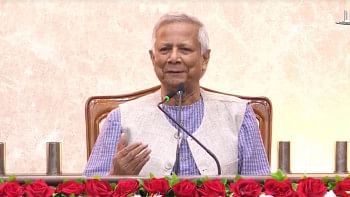90pc of ethnic minority doing informal jobs
Almost 90 percent of the ethnic minority people of the country are engaged in informal jobs that pay very little and often involve only the poor, according to a recent study.
The national average of informal employment in rural areas is 87.5 percent. Of the employed ethnic minority people, only 2.63 percent are skilled workers, while 80 percent do not have skill development training.
The study, "Skill and Employment Baseline Assessment of Indigenous and Tribal Peoples in Bangladesh" was recently carried out by the Bangladesh Institute of Development Studies (BIDS) for the Swiss Agency for Development and Cooperation (SDC) with the support of the International Labour Organization (ILO).
The findings were shared at a stakeholder discussion at the capital's BIDS office yesterday.
Surprisingly, the study found higher unemployment among university graduates (2.04 percent) than among those with no education (0.11 percent), indicating an inverse relationship between unemployment and education.
The survey results show more than half the households (51.1 percent) in the Chittagong Hill Tracts (CHT) are poor, while the poverty rate in plain land is 35 percent.
According to a 2010 government survey, the national rural poverty was 35.2 percent.
While conducting the survey of 10,000 households, 2,000 were drawn from the hill tracts and the rest from the plain land.
Based on its results, the study recommended skills development training, inter-agency coordination, strong linkages with industry and the labour market, sufficient capacity of key agencies, and ethnic minority-friendly rules and regulations at the district and upazila levels.

 For all latest news, follow The Daily Star's Google News channel.
For all latest news, follow The Daily Star's Google News channel. 



Comments